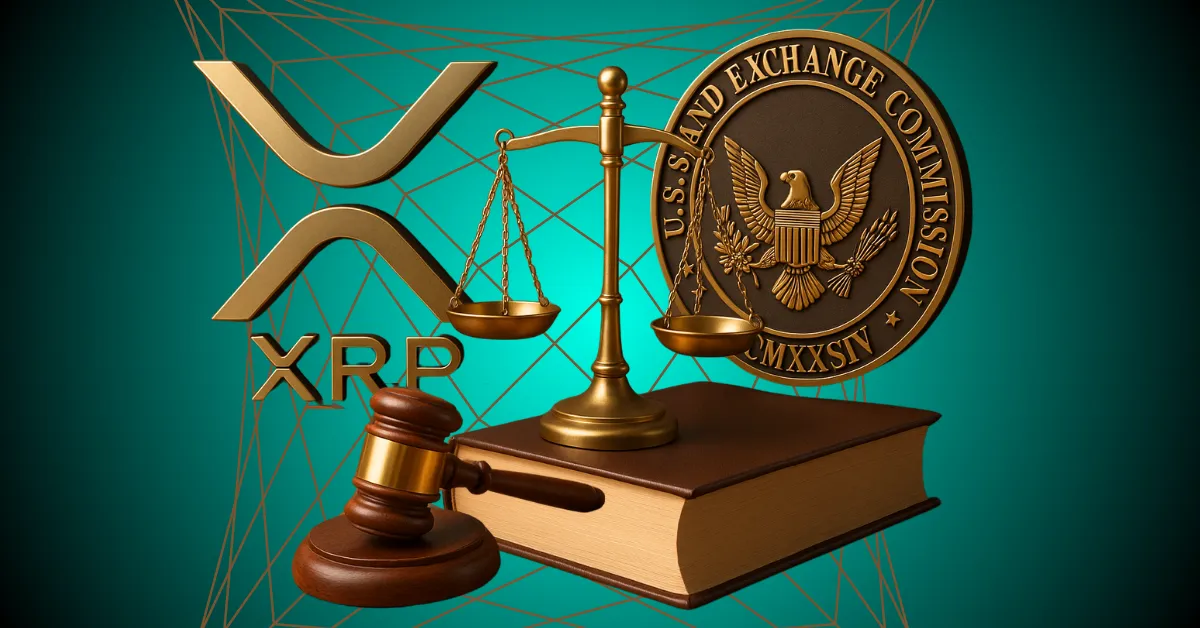The Ripple-SEC legal battle has become a pivotal case in the cryptocurrency industry, shaping the regulatory landscape and defining what constitutes a security in the United States. For nearly five years, the case has been closely watched by lawyers, fintech executives, and XRP investors, all awaiting a final ruling that could have far-reaching implications for the broader blockchain asset market. However, recent developments have dashed hopes for a swift resolution, as Judge Analisa Torres rejected a joint settlement proposal from Ripple Labs and the U.S. Securities and Exchange Commission (SEC). This decision has prolonged the legal uncertainty surrounding cryptocurrencies and highlighted the tensions between judicial finality and pragmatic settlements.
The Heart of the Matter: Why the Settlement Was Rejected
After years of legal disputes, Ripple and the SEC made an unusual joint motion seeking an “indicative ruling.” This proposal aimed to reduce the original $125 million civil penalty to as little as $50 million and lift a permanent injunction that prevents Ripple from offering XRP directly to institutional clients. The parties argued that “exceptional circumstances” justified this motion under Rule 60(b)(6), a rarely used provision for reopening finalized cases. However, Judge Analisa Torres rejected this proposal, emphasizing the importance of procedural integrity and the finality of court decisions. She cited several key reasons for her decision:
– Procedural Integrity: Judge Torres stressed that court decisions must remain final and cannot be easily overturned by the parties involved, even after prolonged legal battles.
– Ripple’s Track Record: The judge highlighted Ripple’s history of violating securities laws and its perceived lack of accountability, which she believed undermined the company’s claim for extraordinary relief.
– Lack of Legal Justification: The joint proposal failed to provide sufficient legal reasoning to justify unwinding the existing injunction and penalty, which the judge had previously deemed appropriate.
Judge Torres’ ruling underscores the importance of judicial finality and the need for robust legal processes, even in high-profile cases involving significant financial stakes.
Ripple’s Checkered History: The Roots of the Court’s Distrust
Ripple’s reputation within the regulatory and legal community has been mixed. While the company achieved a significant victory when Judge Torres ruled that XRP’s programmatic sales to the public through exchanges were not securities transactions, the judge also found Ripple liable for unregistered securities sales to institutional investors. This dual outcome has contributed to the court’s skepticism toward Ripple’s motives and actions.
The recent joint motion for settlement was seen by Judge Torres as a strategic move by Ripple to limit its liability after years of legal combat. The judge was not convinced that this motion warranted exceptional judicial intervention, particularly given Ripple’s history of deliberate violations and lack of accountability. The court’s decision reflects a broader concern about the integrity of legal processes and the need to uphold public interest in an evolving market.
The SEC’s Dilemma: Accountability vs. Pragmatic Settlement
The SEC also faces a complex situation. After years of aggressive prosecution, the agency is eager to secure a favorable outcome without risking a precedent-setting appeal that could limit its authority over crypto assets. The joint settlement proposal offered a pragmatic solution: a reduced penalty, a press release, and avoidance of a potentially unfavorable appellate ruling. However, Judge Torres saw through this strategy and emphasized the importance of transparency, legal process, and robust standards in the crypto market.
The judge’s decision highlights the SEC’s dilemma: the agency must balance its enforcement responsibilities with the need for pragmatic settlements that can provide some measure of closure. However, the court’s ruling makes it clear that settlements cannot be used to circumvent the legal process or undermine the integrity of prior rulings.
Legal and Market Consequences: Uncertainty Rules the Day
The implications of Judge Torres’ ruling are immediate and far-reaching:
Rule 60(b)(6) and the Rarity of Judicial Do-Overs
The joint motion by Ripple and the SEC relied on Rule 60(b)(6) of the Federal Rules of Civil Procedure, which allows courts to revisit finalized judgments in “extraordinary circumstances.” However, courts rarely grant such motions, as they require a fundamental change in facts, evidence of fraud, or a clear error in the original proceedings. Judge Torres’ ruling reaffirms that reopening settled matters is not just a matter of mutual convenience, even in high-profile cases.
What’s Next? Cold Reality and Prolonged Appeals
With the judge’s denial, both Ripple and the SEC face a lengthy appellate process. The SEC must file its next substantive update by August 15, 2025, pushing the resolution of the case even further into the future. For Ripple, the path ahead remains challenging, as the company is forced to operate under constraints that limit its ability to leverage its cross-border payments platform. For the SEC, the case remains unresolved, with the risk of a higher court limiting its authority or handing it a pyrrhic victory. For the broader crypto industry, the uncertainty persists, as the question of whether crypto tokens count as securities remains unanswered.
Conclusion: No Shortcuts, Only Hard Lessons
Judge Analisa Torres’ ruling sends a clear message to Ripple, the SEC, and the broader crypto industry: accountability, process, and legal precedent still matter, especially in uncharted territory like digital assets. Settlement is not just about negotiation; it’s about confronting the legal and factual record in full. For now, Ripple remains constrained, the SEC remains uncertain, and the crypto world will have to wait even longer for definitive answers. The case underscores that there are no shortcuts to justice—no matter how appealing the promise of a quick settlement might seem.











